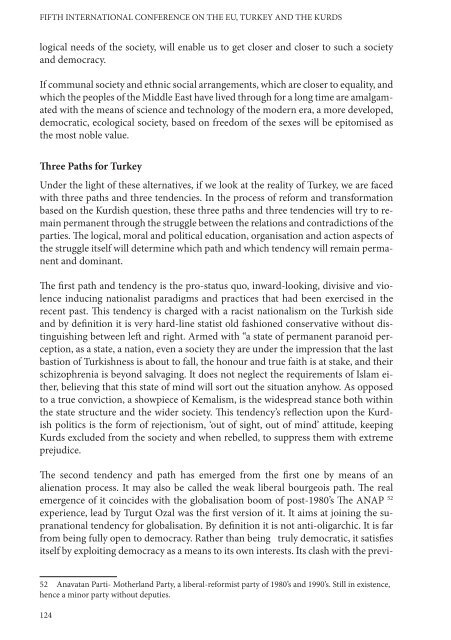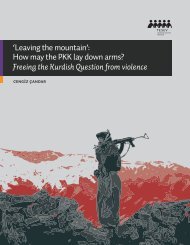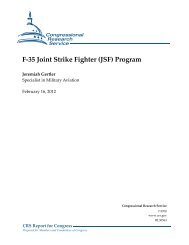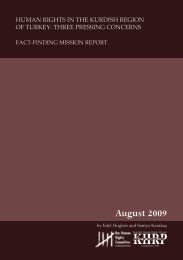FIFTH INTERNATIONAL CONFERENCE ON THE EU TURKEY AND THE KURDS
fifth international conference on the eu, turkey and the kurds
fifth international conference on the eu, turkey and the kurds
Create successful ePaper yourself
Turn your PDF publications into a flip-book with our unique Google optimized e-Paper software.
<strong>FIFTH</strong> <strong>INTERNATI<strong>ON</strong>AL</strong> <strong>C<strong>ON</strong>FERENCE</strong> <strong>ON</strong> <strong>THE</strong> <strong>EU</strong>, <strong>TURKEY</strong> <strong>AND</strong> <strong>THE</strong> <strong>KURDS</strong><br />
logical needs of the society, will enable us to get closer and closer to such a society<br />
and democracy.<br />
If communal society and ethnic social arrangements, which are closer to equality, and<br />
which the peoples of the Middle East have lived through for a long time are amalgamated<br />
with the means of science and technology of the modern era, a more developed,<br />
democratic, ecological society, based on freedom of the sexes will be epitomised as<br />
the most noble value.<br />
Three Paths for Turkey<br />
Under the light of these alternatives, if we look at the reality of Turkey, we are faced<br />
with three paths and three tendencies. In the process of reform and transformation<br />
based on the Kurdish question, these three paths and three tendencies will try to remain<br />
permanent through the struggle between the relations and contradictions of the<br />
parties. The logical, moral and political education, organisation and action aspects of<br />
the struggle itself will determine which path and which tendency will remain permanent<br />
and dominant.<br />
The first path and tendency is the pro-status quo, inward-looking, divisive and violence<br />
inducing nationalist paradigms and practices that had been exercised in the<br />
recent past. This tendency is charged with a racist nationalism on the Turkish side<br />
and by definition it is very hard-line statist old fashioned conservative without distinguishing<br />
between left and right. Armed with “a state of permanent paranoid perception,<br />
as a state, a nation, even a society they are under the impression that the last<br />
bastion of Turkishness is about to fall, the honour and true faith is at stake, and their<br />
schizophrenia is beyond salvaging. It does not neglect the requirements of Islam either,<br />
believing that this state of mind will sort out the situation anyhow. As opposed<br />
to a true conviction, a showpiece of Kemalism, is the widespread stance both within<br />
the state structure and the wider society. This tendency’s reflection upon the Kurdish<br />
politics is the form of rejectionism, ‘out of sight, out of mind’ attitude, keeping<br />
Kurds excluded from the society and when rebelled, to suppress them with extreme<br />
prejudice.<br />
The second tendency and path has emerged from the first one by means of an<br />
alienation process. It may also be called the weak liberal bourgeois path. The real<br />
emergence of it coincides with the globalisation boom of post-1980’s The ANAP 52<br />
experience, lead by Turgut Ozal was the first version of it. It aims at joining the supranational<br />
tendency for globalisation. By definition it is not anti-oligarchic. It is far<br />
from being fully open to democracy. Rather than being truly democratic, it satisfies<br />
itself by exploiting democracy as a means to its own interests. Its clash with the previ-<br />
52 Anavatan Parti- Motherland Party, a liberal-reformist party of 1980’s and 1990’s. Still in existence,<br />
hence a minor party without deputies.<br />
124





